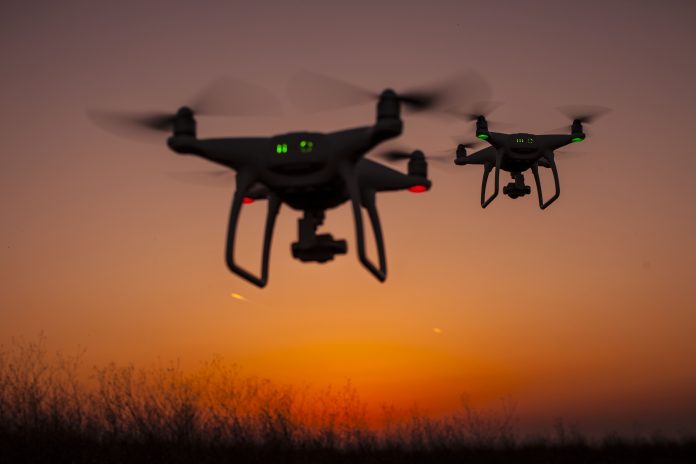Ahead of the 30th November 2019, the Civil Aviation Authority (CAA) has released new UK drone regulations. These regulations will adjust how drone operators are legally able to use drones
The changes include the following:
- There is an age limit of 18 to get Operator ID, and an age limit of 13 to get Flyer ID. Those younger than these ages will need a parent or adult to register and take legal responsibility;
- Drone users will have to pay £9 every year to register as an operator with the CAA
- If you fly a drone weighing between 250g – 20kg (whether you own it or not), a free online competency test (comprising 20 multiple choice questions and carrying a pass mark of 16) must be taken. If you pass, you will qualify for Flyer ID.
- Registration of your drone will become mandatory;
- If you own a drone weighing between 250g – 20kg it needs to be registered as having a legal owner or operator (“Operator ID”);
Mandatory tests and a competency assessment is being imposed by the CAA. The registration portal has now opened and can be found at https://register-drones.caa.co.uk/individual.
These new laws are designed to try and improve public and airspace safety, especially in the wake of events involving near-misses between drones and aircraft. The UK Airprox Board figures show that there were 125 near-misses which were reported in 2018, and there have been a number of airports which have had to suspend flights for hours due to drone activities. The police should now be able to identify the owners of any rogue drones and it will hopefully encourage people to ensure they are competent pilots and have requisite insurance.
Once you have registered and passed the online test, you will be given a unique code which you must display on your drone. This assists with being able to track down your drone should it go missing. This is another service the CAA is looking to start, in the hope that it will increase the chances of owners being reunited with their drones. Further, with of course the added advantage of being able to enforce penalties and criminal sanctions against owners who do not comply with the regulations who it should hopefully be easier to track.
How will this affect mid-sized businesses?
There are a number of businesses who benefit from the use of drones, from professional photography to construction to farming. As they become more common and accessible, it is likely to be seen that the use of drones will become easier and more commercially viable to use. The fact that regulations are imposing assessments and competency testing, along with insurance, should make businesses more comfortable integrating this technology into their businesses.
It should be noted that most commercial pilots would already be doing the vast majority of what the new regulations are bringing in. In reality much of the time it has been the hobbyist that has caused a number of the issues heard about in the press. As such, hopefully, the law will create a safer platform for the use of drones, creating more positive press coverage and therefore more comfort in traditional industries adopting this technology, such as construction.
It is important to note and clarify that registration must be made in the name of the individual person who will own and/or fly the drone as opposed to a business. The rationale behind this is that under the new regulations, individuals are to carry legal responsibility. This means if something was to go wrong, legal responsibility would lie with a specific person. Therefore, business owners should be aware they will not be able to register the company as the legal owner of the drone so cannot limit their liability for infringing actions.
Mid-sized businesses should ensure that they keep on top of their drone registration and continue to pay the £9 annual registration fee.
The new regulations should give businesses comfort that, when engaging with a company to pilot drones, each operator has personally had to undergo training, risk assessment and registration. This adds a further level of comfort to the competency of the operators.
What are the implications of not abiding by the rules?
Those who own or fly drones should take the new laws and regulations seriously and ensure that they are fully compliant. You will be breaking the law if you cannot prove that you have registered and passed the online course. Those who have not registered their drone or passed the online test by the deadline is at risk of facing a fine of up to £1,000. The government have also been in talks about implementing a new Drone Bill that will include enforcement to the extent that it will enable the police to do more in terms of on-the-spot fines.
What should your business be doing to prepare?
Firstly, you need to double-check that the weight of your drone falls within the weights stipulated under the new laws (i.e. 250g – 20kg). If it does (which it is likely to do) then you will need to consider who, within your business, will have legal responsibility for your drone(s). This will be the person required to take the online test. The person who will take the test must ensure that they have the relevant knowledge to do so; all information required to take the test will be contained in a new Drone and Model Aircraft Code.
A business should create a risk assessment and drone operating plan. This is evidence of compliance with the regulations will also assist with getting insurance and securing tenders for business. It also ensures a safe and secure platform for them to operate. You will need to take into account the site, weather, people population and additional permissions that may be required such as flying over London for example.
You must also remember that it remains your responsibility to be aware of the general rules of flying drones safely, such as ensuring that it is always in sight and keeping the right distances between your drone and people and property. If your business needs to fly drones outside of the UK, it is crucial to note that the UK registration will not be valid outside of the UK. You will need to ensure that you check with the relevant authority in the chosen destination for local requirements for flying drones.
You must have suitable GDPR/ data protection policies and practices in place with regards to the photographs and personal data that your drone will inevitably be securing.
It needs to be clear who the insurance will be covering for the flight and who is liable for health and safety during the flight. There are typically many parties involved, for example, you may have the end client who owns the site, contractors working on the site and a third-party drone operator. It needs to be clear who is responsible for what and who’s insurance applies. Ambiguity, if there is an issue, can cause legal disputes or delay.
Finally, do make sure that you stay up to date with the news on this topic and read up as much as possible on the issues surrounding drones to ensure that you do not fall foul of the new regulations, including new changes in Europe which will be in force across the EU by mid-2020.
Karen Holden
Founder











